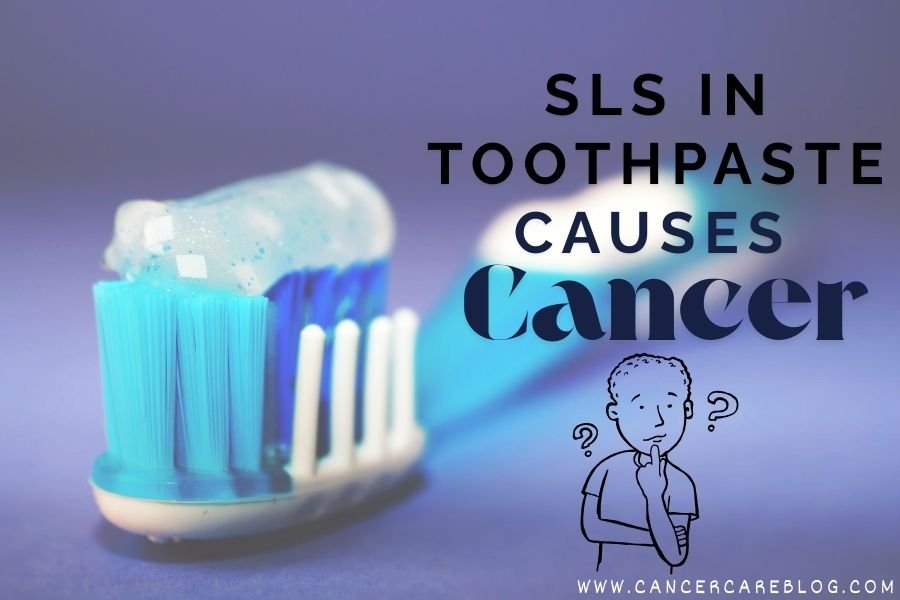Every morning, most of us brush our teeth without thinking twice about what’s in our toothpaste. But then I came across a question that stopped me for a second:
Can toothpaste cause cancer?
More specifically, is the ingredient Sodium Lauryl Sulfate (SLS) something we should worry about?
If you’re here, you’re likely concerned about the SLS cancer link. Maybe someone warned you about SLS toothpaste, or maybe you’ve read somewhere that sodium lauryl sulfate dangers include cancer.
Let me break it down for you—based on facts, not fear.
What is SLS, and Why Is It in Toothpaste?
Sodium Lauryl Sulfate, or SLS, is a foaming agent. It helps toothpaste lather up and spread evenly across your teeth.
You’ll also find it in shampoos, soaps, and even some facial cleansers.
Why is it so common? Because it’s cheap, effective, and helps create that clean feeling we all expect.
But here’s the issue—people have started asking, “Is SLS safe?”
Some claim that it’s linked to cancer, skin damage, or other health risks. If you search on YouTube, you will find people saying Cancer From Toothpaste.
Let’s separate the rumors from the reality.
Is SLS Safe or Not?
Here’s what I found out: According to multiple studies and trusted health organizations, SLS is not classified as a carcinogen. That means it’s not known to cause cancer.
The FDA (U.S. Food and Drug Administration) and American Cancer Society haven’t found strong evidence to support that SLS causes cancer.
But that doesn’t mean it’s completely safe for everyone.
SLS can cause irritation, especially in people with sensitive skin, gum problems, or certain allergies. If you notice mouth sores, dryness, or peeling after using toothpaste, SLS might be the cause—not cancer, but irritation.
Where Did the “Toothpaste Causes Cancer” Idea Come From?
This myth likely started because of the way SLS interacts with other ingredients.
Some online sources claim that when SLS is mixed with certain chemicals, it can produce nitrosamines, which are known to be cancer-causing. But here’s the key detail:
To produce nitrosamines from SLS, very specific chemical reactions have to take place—and those conditions don’t exist in your toothpaste tube.
So, does your toothpaste cause cancer just because it has SLS?
No, it doesn’t.
Are There Real Dangers With Sodium Lauryl Sulfate?
The biggest risk with SLS is irritation, not cancer.
Here’s what it can do:
- Dry out the tissues in your mouth
- Increase the chance of canker sores
- Make your gums sensitive
- Cause eye or skin irritation in other products
In rare cases, people develop allergies or chronic inflammation when they use products with SLS every day.
So while it’s not toxic or cancerous, it may not be ideal for everyone.
Should You Switch to SLS-Free Toothpaste?
That depends on you.
If you’ve had mouth ulcers, sensitivity, or gum issues, switching to SLS-free toothpaste might help.
Many brands now offer natural or organic toothpaste options without Sodium Lauryl Sulfate.
These formulas often use ingredients like coconut oil, aloe vera, or baking soda to clean teeth gently without foam.
And honestly? Foam doesn’t equal clean. It’s just there for the feeling—not function.
Why People Dealing With Cancer Might Care More About This
Let’s be honest—if you’ve been diagnosed with cancer or are undergoing treatment, you’re already extra careful about what goes in your body.
Chemotherapy or radiation can make your mouth more sensitive. In those cases, SLS toothpaste might actually make things worse—not because of cancer risk, but because it dries your mouth or causes ulcers.
This is why many oncologists recommend SLS-free oral care products for cancer patients.
If you’re dealing with blood cancer, oral cancer, or are recovering from head/neck treatment, ask your doctor if switching toothpaste could help reduce discomfort.
What To Look For on the Label
When you’re standing in the toothpaste aisle, confused by ingredients, here’s a quick checklist:
✔️ Check for Sodium Lauryl Sulfate (SLS) or Sodium Laureth Sulfate (SLES)
✔️ Look for products labeled SLS-Free
✔️ Choose toothpaste with natural ingredients if you’re sensitive
✔️ Ask your dentist for a recommendation, especially during treatment
Final Verdict: Is SLS Safe or Not?
Let me give it to you straight:
- SLS is not proven to cause cancer.
- It’s approved for use in personal care products.
- The main concern is irritation, not cancer.
- If you’re sensitive, or going through cancer treatment, SLS-free options are better.
So the answer to “is SLS safe?” depends on your body. If you don’t react to it, it’s okay to use. If you do, there are better choices available.
Real Talk: Should You Be Worried?
If you’re like me, you don’t want to ignore warnings—but you also don’t want to live in fear.
SLS is one of those ingredients that sparked panic, but over time, research has shown it’s not as dangerous as rumors suggest.
Still, your comfort matters.
And if something as simple as changing toothpaste makes your day better during cancer treatment—or helps you sleep a little easier—it’s worth it.
Sources:
American Cancer Society – Common Myths About Cancer Causes
U.S. Food & Drug Administration (FDA) – Cosmetics Ingredient Safety



